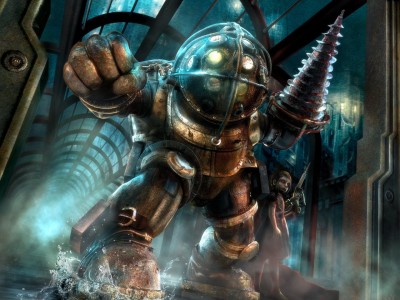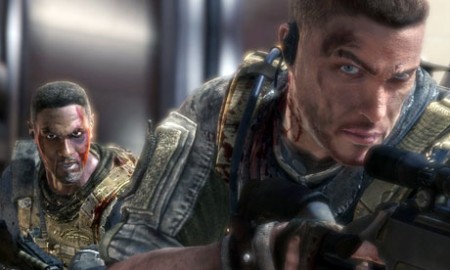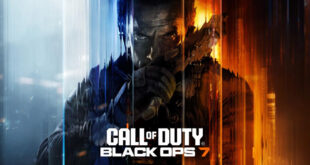It’s a serious thing to consider…
Before I get into the meat and potatoes, I want to preface this ‘response’ with two points. If you don’t care about my justifications for analyzing this essay, you can safely skip the next two paragraphs. If you want to read the article/blog post, you can check it out here, but I’m going to assume you’ve at least glossed over the thing.
The first is that I am a fledgling game designer myself. I don’t have many years of experience, I’m working on my first few real titles. I’m not a big shot, I’m not well known world-wide. I don’t have the pedigree that many others do. I do, however, have a penchant and talent for critical analysis, and I think anyone else who has this capability can step in like I have an respond to articles like this. I’m talking about the the range of topics from “games-as-art” to “games-as-philosophy” and everything in between. The takeaway here is that while I may not be as qualified in game-making as the writer of “A Man Chooses A Slave Obeys”, I’m certainly qualified to critique his words.
The second point is far more superficial, but just as important. If there’s one thing that I’ve learned in all of my years studying the English language, it’s that having a clear, concise, and coherent argument is integral to making a point in an essay or other literary medium. You want to show a moral? You make the lesson very clear. And all of this learning goes out the window when you approach the internet as your delivery medium. We all know it, and there’s no use denying it: spelling, grammar, and formatting are the entry point for the majority of internet users to even bother to consider perusing your words. It’s not that I’m vainly nitpicking in an attempt to undermine the quality or character of the writer of “A Man Chooses A Slave Obeys”; on the contrary, I bring it up because it breaks the flow of reading when I try to mentally engage the statements put forth. It’s jarring, it breaks my thoughts, and it’s sometimes hard to follow. The takeaway here is that the article contains misspellings, bad grammar, and poor formatting, and it ruins the experience of the article, and personally it ruins a bit of the credibility. Whether the person can communicate with excellent english is something to consider, so I tend not to worry too much about grammar. But spelling is easily fixed and formatting is a web design problem. Just making the point, nothing more.
So, let’s dive in shall we? The author, Anjin Anhut, proposes the idea that we are slaves to the game world, and that if a game makes us uncomfortable, we should have the wherewithal to simply shut the game off. Anhut starts off by pointing out that it was Spec Ops The Line, not Bioshock, that profoundly changed the way he experiences games. A little surprising for me, since Bioshock is regarded as excellent storytelling, gameplay, etc. His main point, though, was that the most interesting and intense gaming experiences are the ones that ask existential questions, which he finds truly meaningful. Anhut then drew a parallel from these ‘truly meaningful’ game experiences to the Voight-Kampff machine from Blade Runner, which measures whether you are a human based on your empathic responses. It’s a bit dramatic to claim that video game existentialism effectively tests his humanity, but hey, the guy makes his point: games that ask questions of the player, games with true depth, are what he finds most interesting and meaningful. I can agree with that, to a degree. I also look at the player experience as another aspect of game design, so I can appreciate where he’s coming from. Without gilding the lily too much, the point that Anhut is trying to make is that these games presented a very obvious narrative, a very obvious attempt at symbolism and intellectualism, but Spec Ops was the one that really asked the uncomfortable, discover-who-you-are questions of the player. And Anhut is right. Sort of.

Anhut takes the game on a superficial level, and gets upset. The game forces a specific gameplay mentality on us, and Anhut has had enough. This is a perfectly fair assessment that I concur with, considering how often and superficially deeply intellectual or emotional gameplay gets crafted in games; the treatment of morality in the original Fable comes to mind. And here’s where I get into it: Anhut makes a valid point, but Spec Ops The Line is the wrong game to use as an example, for the very fact that it’s narrative purpose is to shine a light on tropes of the shooter genre, both in terms of narrative and game mechanics.
In the beginning, Spec Ops is a shoot-first-think-never kind of game. The plot is predictable (watch this playthrough to see what I mean), and any intellectual exercise is put to rest the moment you hear the main character bark out “less talking, more shooting” in the first 10 minutes or so of play. But as the lovely Extra Credits folks have kindly pointed out, this game does something very different, and at it’s heart, it really is an incredible intellectual exercise. And there’s a kernel of intellectualism here that Anhut was trying to get it (I think), with respect to the way that games present their depth.

Anhut appears to be making the blanket statement that the general use of narrative and choice in games needs fixing, because it caters to outdated ideologies and points of view. It’s not truly representative of the kinds of people who play these games, or what they really want out of it. To really understand this, consider how many non-fantasy/sci-fi games have a white male protagonist. I don’t want to get into the issue of race/religion/politics in/of games (at least not yet), but that seems to be the idea here. As the technological capabilities of games gets greater, so too should the intellectual depth of those games as well. That’s not to say that every game needs to have depth in that respect; I don’t expect to see a multi-racial pacman remake wherein he goes on a spiritual journey to find himself, and to find out if eating those ghosts is really the extent of who he is (although that would be interesting to see). The point is that games that attempt or want to push their depth have a long way to go. It’s something I can definitely agree with Anhut about.
The staff at BG were discussing the article, and whether (fairly) it was a bunch of pretentious drivel or something that really hit the nail on the head. I think it’s safe to say that while Anhut may have used the wrong game to make his point (a game that has a whole other interesting, but related, point), he’s onto something. It’s definitely something I look forward to improving in the games I make (those that attempt depth, anyway).
 BrutalGamer Bringing you Brutally Honest feedback from today's entertainment industry.
BrutalGamer Bringing you Brutally Honest feedback from today's entertainment industry.






